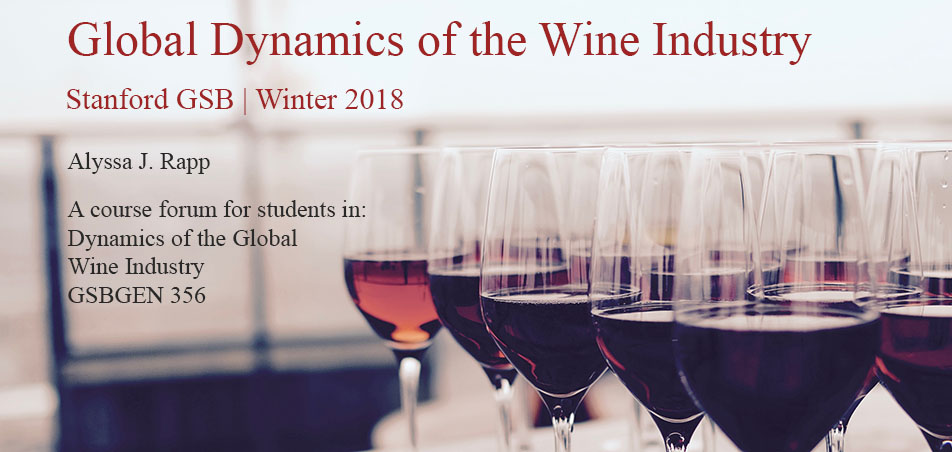Prior to class today, I already thought managing social media for alcohol-related products and offerings had its pain-points.
At both Google Express and BloomThat (where I helped manage social media as parts of my roles), we sold wine from our platforms. I remember the social media restrictions being strict, specifically around age-gating. It was crucial for those brands that we make it clear that we weren't endorsing any sort of under-age perusal of our offerings. Many brands follow the instructions here for how to lead the appropriate people to alcohol products on our site.
However, class today opened my eyes to see how even more complex the rules can be, specifically when tied-house comes into the picture.
As we were discussing the tweet scenarios -- can I post about a great wine as BevMo if I'm not paid? What about if I as an individual do it? -- I started to wonder about re-tweets. If they re-tweet, that's probably a problem, we said as a class.
When I was managing BloomThat's Twitter account in particular, whenever a customer would say something positive, we'd quickly re-tweet it and move on (we did it quickly so that we wouldn't fall behind as the tweets came in). What if, I was wondering, a grocery store accidentally does something as small as a re-tweet... what's the severity of the punishment? That seems so easy to accidentally do. What are the repercussions?
I did some digging for a real example of when this happened, and stumbled across this article, Tweets cause trouble for Sacramento-area wineries, breweries. For the eight "culprits," they had the option to either confess or be suspended for 10 days: "ABC sent letters threatening to suspend their licenses for 10 days, or the businesses could admit to the offense and be placed on probation for one year."
So not "we're shutting you down," but definitely more than just a light reminder.
In this kind of environment, retreating certainly seems easier than re-tweeting.

Thanks for sharing Div! I was also struck by how particular the rules were and how easily a producer could fall out of compliance. I was also left wondering if the application and enforcement of these rules differed by size of producer. For example, when Budlight sponsors an event like Lollapalooza, the producer not only provides funding for activations, but also even creates special bottles for the event (https://trndmonitor.com/bud-light-ups-the-ante-bringing-their-latest-collaborative-stage-moment-to-lollapalooza/). Lollapalooza in turn acts as a retailer and sells products to consumers. Additionally, at events like this only AB InBev products are sold. To me, it would seem like something like this would be much more anti-competitive than retweeting something in association with a particular retailer. It left me wondering if bigger producer are just better are navigating the rules or if they are so powerful that the rules don't apply in the same way to them?
ReplyDelete